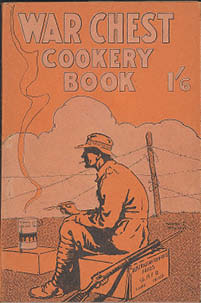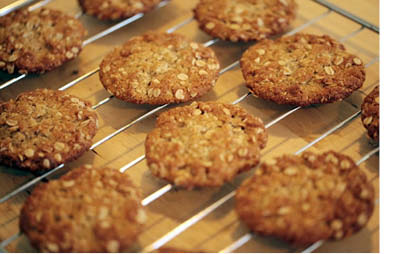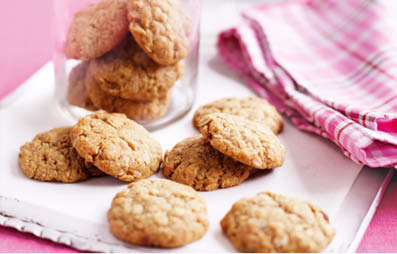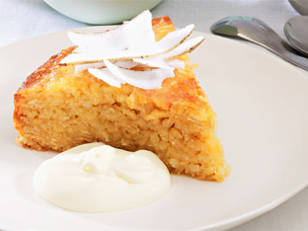
The first known Anzac biscuit recipe appeared in The War Chest Cookery Book, which was published in Sydney in 1917, but this recipe was for a cake, not a biscuit. It is said that biscuits with a similar recipe to the one we knew today appeared in magazines under different names, sometimes called “Rolled Oat Biscuits” or “Soldier’s Biscuits”. The current name only came about after the legendary ANZAC Gallipoli Campaign.
Anzac biscuit recipes, in the form we know them today, began appearing in cookbooks in the 1920s. They were sometimes called “Anzac crisps” or “Anzac crispies” (not “Anzac cookies”, as one would assume) in reference to their hardness. The earliest recipe for these “crispies” found to date is from a New Zealand cookbook published in 1921.
The Original Recipe
The crunchiness of the biscuits was important when the recipe first came about. Although we now see recipes for more chewy versions, the original biscuits – whatever their name at the time – had to stay fresh for the months it took them to reach soldiers overseas.
It is said that women at home came up with the recipe based on ingredients that were readily available, namely oats, sugar, flour, coconut, butter, golden syrup or treacle, bi-carbonate of soda and boiling water. None of these spoiled easily, which meant that the biscuits would stay fresh for longer. Eggs were scarce during the war, and made baked goods more likely to spoil, which is why melted butter and treacle were used as binding agents, and bi-carb soda as a leavening agent.
Both Australia and New Zealand had an extensive number of Scottish immigrants and descendants, so some say that the original recipe was based on a Scottish biscuits recipe. Oats were eaten extensively in Scotland and were considered very nutritious, which is why they were included.
Although associated with wartime, the biscuits were less common in WW2 as ships had better refrigeration, allowing goods such as fruitcake to be transported to troops stationed overseas.
ANZAC Biscuits
provided by Joan Breznell from the Eastern Goulburn Valley CWA Group
Ingredients
1 cup plain flour
3/4 cup sugar
2 tablespoons golden syrup
1 teaspoon boiling water
1 cup rolled oats
125 g butter
2 teaspoons bicarbonate soda
Method
Mix flour, oats and sugar. Melt butter and golden syrup together. Mix bi-carbonate soda with boiling water and add to the butter mixture. Pour into dry ingredients and stir to combine. Place spoonfuls of mixture onto greased oven trays, leaving room for them to spread. Bake at 100 degrees Celsius for 20 minutes. Put onto a cooling tray to cool completely before packing away. Makes about 30.
Chewy Anzac biscuits
Ingredients
1 cup rolled oats
1 cup plain flour
2/3 cup brown sugar
2/3 cup desiccated coconut
125g butter, chopped
2 tablespoons golden syrup
1/2 teaspoon bicarbonate of soda
Method
Preheat oven to 160°C/140°C fan-forced. Line 3 baking trays with baking paper.
ANZAC Cake
Ingredients
Melted butter, for greasing
Caster sugar, for dusting
125g unsalted butter
250g golden syrup
6 eggs
120g self-raising flour
120g rolled oats
150g desiccated coconut
80g icing sugar
1/4 cup caster sugar
1/4 cup dark rum
1/4 fresh coconut
Cream, to serve
Method
1 Preheat oven to 170ºC. Line and grease a 23cm round cake tin; dust with caster sugar.
2 Melt butter and golden syrup in a small pan over a low heat. Set aside to cool slightly, then beat in eggs.
3 Combine flour, oats, coconut and icing sugar in a bowl; stir in butter mixture. Spoon into prepared tin and bake for 20-25 minutes or until a skewer comes out clean when inserted in centre. Set aside for 5 minutes.
4 Meanwhile, bring caster sugar and rum to the boil, cook for 5 minutes, then set aside. Remove coconut shell and shred coconut meat into fine strips with a vegie peeler.
5 Gently turn out cake onto a wire rack to cool. Serve drizzled with rum syrup, topped with coconut and a dollop of cream on the side. Source







